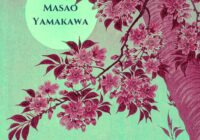Category Archives: Uncategorized
Japanese literature release: “Alien Christmas” (Volume 3 of Masao Yamakawa collection)
I was brought up where celebrating Christmas for a religious reason was the norm, but now as an adult it’s safe to say my feelings for Christmas are quite different than when I was a child. I celebrate it for different reasons, and am more aware that some parts of the world don’t think of… Read More »
Japanese Youtube Recommendation: Taigu Osho (talks from a Buddhist Priest)
As part of my continuing education in Japanese I’m always on the lookout for good content in Japanese that is interesting, educational, or both. While watching videos is fun, in terms of budgeting my time I find I have many more opportunities to experience content going on a walk or driving, so I tend to… Read More »





